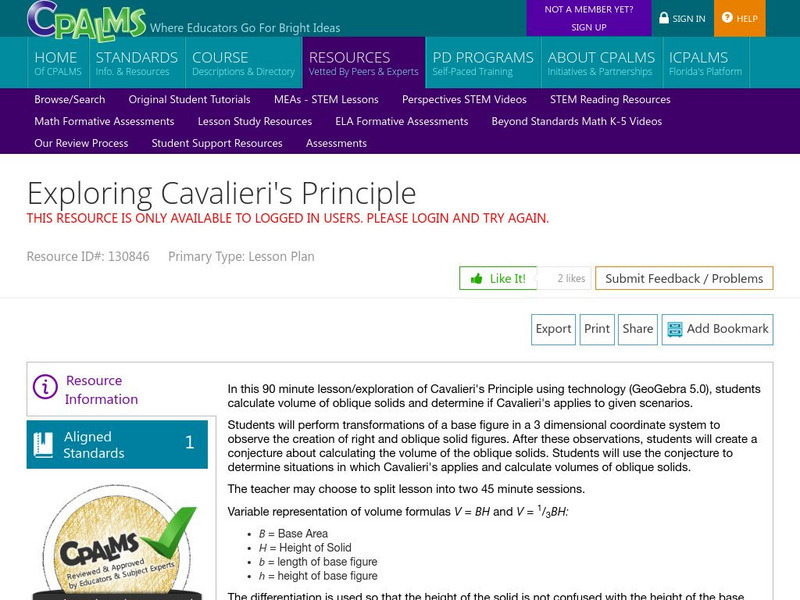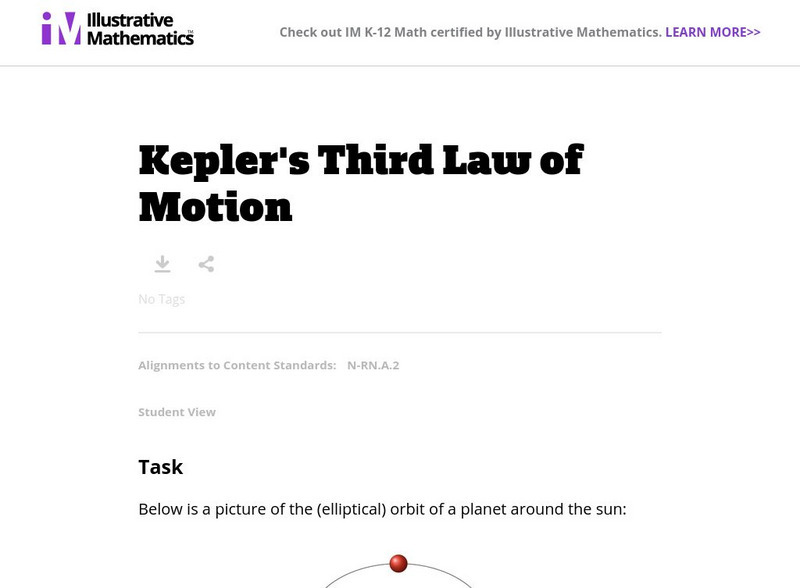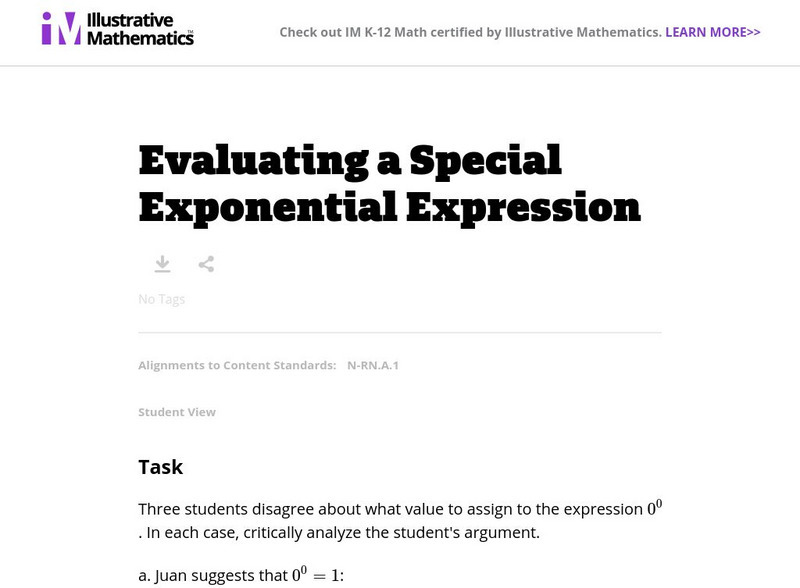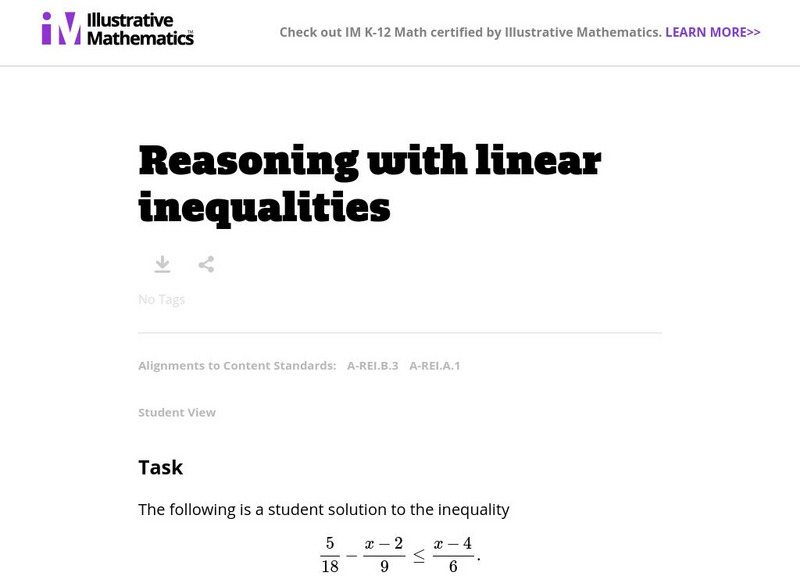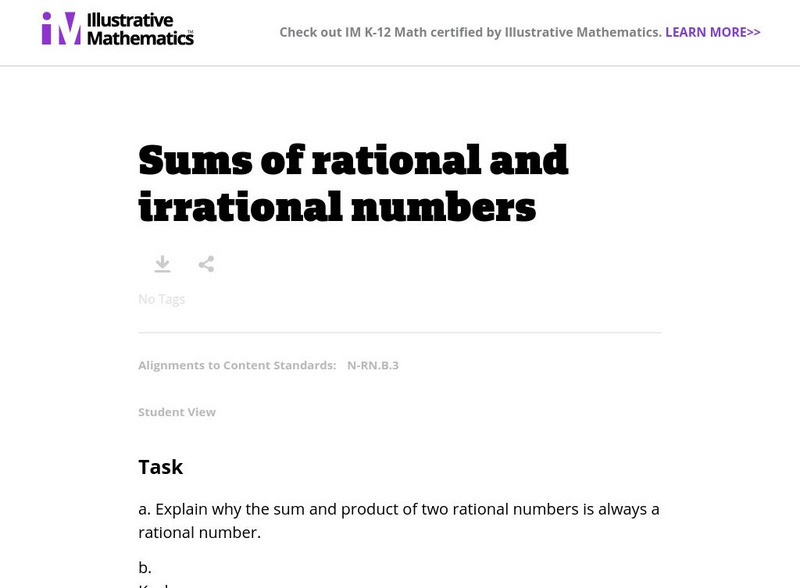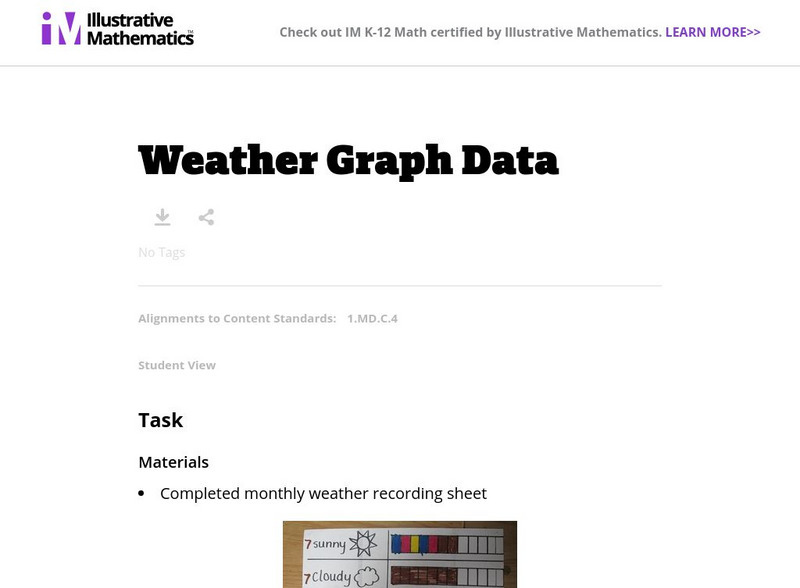Better Lesson
Better Lesson: Area and Perimeter Review Using Legos
Lesson plan in which students calculate area, build areas to a given amount, and calculate the perimeter with the use of Legos. Step by step instructions and videos are provided. CCSS.Math.Content.3.MD.C.7.c Use area models to represent...
Better Lesson
Better Lesson: Using Models to Add and Subtract
Common Core standards encourage the use of models to build understanding in math. This lesson shows sometimes reluctant 2nd graders that models are helpful tools in solving mathematical problems.
Better Lesson
Better Lesson: Time and Money
As the result of a Unit assessment, it was found that students showed some confusion with writing time and with adding sets of coins. These skills need to be reviewed to aid in mastery of the Common Core standards for time and money.
Better Lesson
Better Lesson: Our Understanding of Numbers
This lesson is an informal assessment of student understanding of the base ten system, a critical area in the Common Core.
Better Lesson
Better Lesson: Moving Along in Hundreds
The Common Core standard is that students understand that the numbers 100, 200, etc. represent so many groups of 100.
Better Lesson
Better Lesson: Multiplying With Fractions
Sixth graders will use their understanding of multiplying fractions and apply it to dividing fractions which is a key component in common core. Included in this lesson are a closing activity, a link to a website for area models, and a...
Intel Corporation
Intel: Fractions Made Visual
Students learn the importance of math accuracy and, more specifically, that knowing how to add, subtract, multiply, and divide fractions make life easier for everyone. To help students come to this understanding, they are assigned to a...
CPALMS
Cpalms: Dollars for Density
This is a guided inquiry activity in which students use simple lab procedures and discussions to develop and apply the concept of density. Students collect and graph data which they use to explore the relationship between mass and...
Better Lesson
Better Lesson: Rewriting Formulas
For this lesson, young scholars explore "real-life" resources that make use of literal equations (rewriting known formulas) to help make people's lives easier. Students will use Excel to design formulas that find a specific value like...
CPALMS
Cpalms: Exploring Cavalieri's Principle
[Free Registration/Login Required] In this instructional activity, students use the geometry program GeoGebra to explore Cavalieri's Principle, specifically to investigate whether it applies when calculating the volume of oblique solids....
Better Lesson
Better Lesson: Comparing Temperatures
Second graders should be able to recognize what makes one number greater or smaller than another, using place value understanding which is crucial to Common Core mastery. This lesson plan combines math and science by having students...
Illustrative Mathematics
Illustrative Mathematics: N rn.a.2: Kepler's Third Law of Motion
The purpose of this task is to solve some expressions requiring fractional exponents in the modeling context of planetary motion. Aligns with N-RN.A.2.
Illustrative Mathematics
Illustrative Mathematics: N rn.a.1: Evaluating a Special Exponential Expression
The purpose of this task is to study the rules of exponents in the context of trying to make sense of a challenging mathematical expression. Teachers will critically analyze each student's argument. Aligns with N-RN.A.1.
Illustrative Mathematics
Illustrative Mathematics: A Rei Reasoning With Linear Inequalities
Young scholars are presented with a solution to an inequality and are asked to find two mathematical errors and explain why they are incorrect. Aligns with A-REI.B.3 and A-REI.A.1.
Illustrative Mathematics
Illustrative Mathematics: N Rn Sums of Rational and Irrational Numbers
The goal of this task is to examine sums and products of rational and irrational numbers. One important property of rational numbers is that their decimals always terminate or repeat: using a slightly different formulation, a rational...
Illustrative Mathematics
Illustrative Mathematics: a.apr Combined Fuel Efficiency
The purpose of this problem is to rewrite simple rational expressions in different forms to exhibit different aspects of the expression, in the context of a relevant real-world context, in this case, the fuel efficiency of a car. A-APR.D.6.
Illustrative Mathematics
Illustrative Mathematics: A Rei Pythagorean Triples
This task has two separate goals: the first is to solve a pair of equations, one quadratic and the other linear. The second goal is to observe that a point that lies on a circle gives rise to a Pythagorean triple. Aligns with A-REI.C.7.
Illustrative Mathematics
Illustrative Mathematics: Weather Graph Data
The purpose of this task is for students to represent and interpret weather data, as well as answer questions about the data they have recorded. Student worksheets and recording sheet are included.
Illustrative Mathematics
Illustrative Mathematics: 7.rp Proportionality
This lesson plan explores how to recognize and represent proportional relationships between quantities.
Illustrative Mathematics
Illustrative Mathematics: G Mg Hexagonal Pattern of Beehives
Beehives are made of walls, each of the same size, enclosing small hexagonal cells where honey and pollen are stored and bees are raised. This problem examines some of the mathematical advantages of the hexagonal tiling in a beehive....
Illustrative Mathematics
Illustrative Mathematics: G Mg Toilet Roll
Picture a roll of toilet paper; assume that the paper in the roll is very tightly rolled. Assuming that the paper in the roll is very thin, find a relationship between the thickness of the paper, the inner and outer radii of the roll,...
Illustrative Mathematics
Illustrative Mathematics: G Mg How Many Cells Are in the Human Body?
About how many cells are in the human body? The purpose of this task is for students to apply the concepts of mass, volume, and density in a real-world context. Aligns with G-MG.A.2.
Illustrative Mathematics
Illustrative Mathematics: G Co Construction of Perpendicular Bisector
A and B are two distinct points in the plane and line AB is the segment joining them. The goal of this problem is to construct the perpendicular bisector of segment AB. Aligns with G-CO.D.12.
Illustrative Mathematics
Illustrative Mathematics: G Co Dilations and Distances
The goal of this task is to study the impact of dilations on distances between points. Aligns with G-CO.A.2.
Other popular searches
- Common Core Math
- Common Core Math Lessons
- Math Common Core Lesson Plans
- Math Common Core Standards
- Common Core Kindergarten Math
- Common Core Math Fractions





